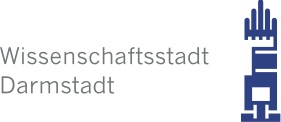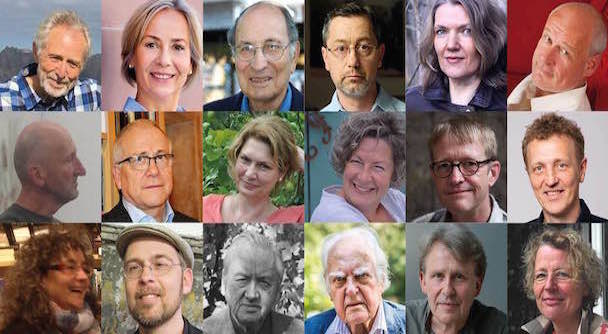Authors & Books
Kurt Drawert
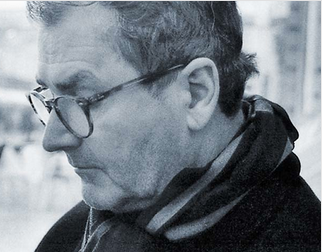
Born 1956 in Hennigsdorf (Brandenburg), childhood in Borgsdorf and Hohen-Neuendorf (near Berlin). 1967 Moved to Dresden, trained as a skilled worker in electronics. 1980 A-levels at night school, then unskilled work, including in a bakery and at the post office. Worked in the »Sächsische Landesbibliothek«, Dresden, then in a youth club. From 1982 to 1985 studies at the Institute for Literature, Leipzig. Moved to Leipzig in 1984.
Freelance author since 1986. Married the photographer Ute Döring in 1991. 1993 Moves to Osterholz-Scharmbeck (near Bremen), 1995/1996 stays at the Villa Massimo, Rome. 1996 move to Darmstadt.
2 children—Lars Drawert and Tilman Döring.
Since 1998 director of the Darmstadt Text Workshop. Since 2004 director of »Zentrum Junge Literatur«, Darmstadt. Since 2014 member of the German Academy for Language and Poetry. Since 2018 member of the Saxon Academy of Arts.
Viewing the multitude of his publications in detail on Kurt Drawert’s website is always worthwhile.
In my publishing programme, Kurt Drawert is first and foremost the editor of the Edition Darmstädter Textwerkstatt—it is a pleasure to have Kurt Drawert, his debutants and the edition in the publishing house!
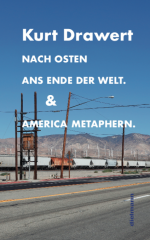
978-3-86638-075-2

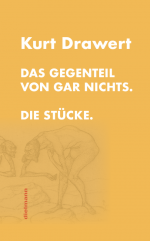
978-3-86638-076-9

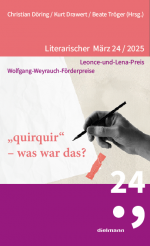
978-3-86638-466-8


978-3-86638-371-5

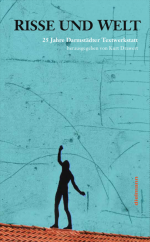
978-3-86638-380-7

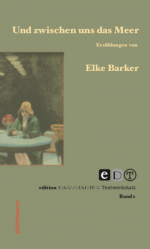
And between us the Sea
24 Short Stories
- Volume 1
- Edition Darmstädter Textwerkstatt
- Editor and Preface by
- Kurt Drawert
- 152 pages
- Hardcover with ribbon
- Comment by Martina Weber
978-3-86638-370-8

The volume brings together 24 short stories. Some of them were written in the Darmstädter Textwerkstatt.
Elke Barker writes short prose that consistently sets its very own movements of seeing, listening and speaking and imperceptibly shifts the reader's perceptive abilities on the few pages of its events—until we, together with the author, whirl into the funnel of an upheaval or, as if by chance, are deposited again in the familiar.—In his foreword, Kurt Drawert writes in his resourcefulness that shines as much in detail as in the whole:
»I don’t want to tell the story here because it would detract from being a metaphor. For the sea is only apparently the concrete topos used in this story; rather, in its symbolic meaning, it is the insurmountable rift that separates people from one another. This rift—I dare to highlight it as a central object of conflict for all narratives and to understand it paradigmatically—is irreversible like the human lack in and of itself. But this is not explicitly stated at all, because it is not evident to the narrator himself. He stands somewhere in the shadows of the studio into which that man with the unfamiliar name Aboud suddenly intrudes, and lays out the images and scenes before us like a rebus that we ourselves have to complete. This double connotation of serving lexical literalness and symbolic figure in equal measure, and leaving it to the reader to decide which form of reality to ascribe it to, is part of the stylistic method of the prose and gives it the aura of the ineffable.«
In addition to all this ineffable, indeed, at times uncanny, Martina Weber, who adds an additional location to the volume, emphasises this about Elke Barker's storytelling:
»She is open to what happens in her close surroundings, observes people, gets involved. Trust is unpredictable. Suddenly it shimmers, between strangers, and just as suddenly it has disappeared in a friendship. At times, elements of a dream logic flash up, creating irritation and depth. Even a non-place like a subway becomes unique, experiences magic. The tension lies above all in the atmosphere ...«
Both the editor and publisher would like to express their sincere thanks to the City of Darmstadt for kindly sponsoring!
